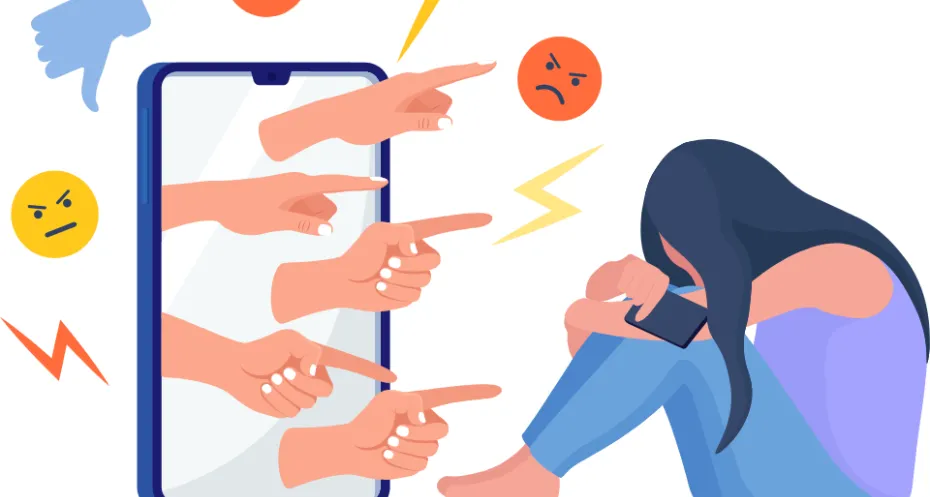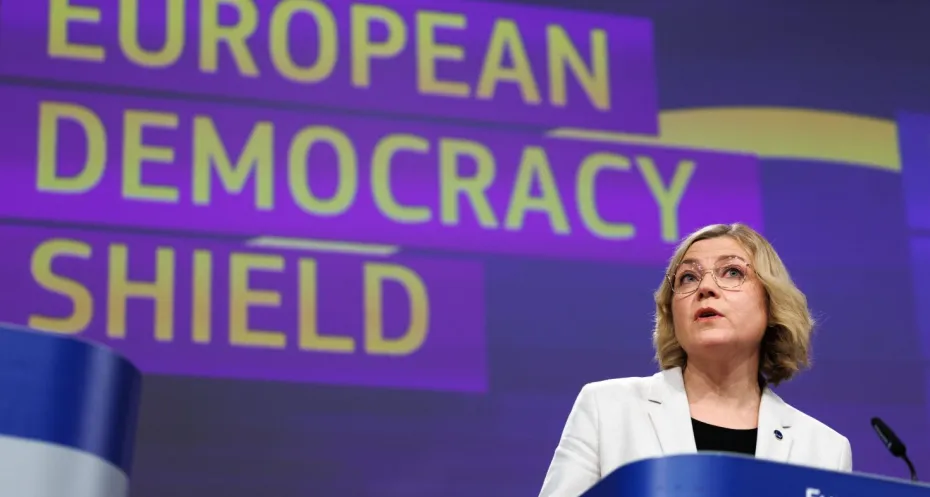The impact of online violence on women journalists and press freedom

We need to be treating online violence against women journalists with the same priority as offline violence, says Flora Schulte Nordholt, Policy & Advocacy Officer at Free Press Unlimited. In anticipation of the first ever conference on online platform regulation organised by UNESCO, she tells us more about the impact of online violence on women journalists, and why this needs to be an important topic at the conference.
73% of women journalists have experienced some form of online violence. This can vary from receiving hateful messages and rape threats, to doxing and the photoshopping of one’s face on pornographic images. Schulte Nordholt: “What makes this a gender issue is that these attacks are sexist, misogynistic, and gender based. We see that deeply rooted gender inequalities that exist within society, are now being translated to the online world.” Online violence has severe impacts on different levels. “It has an acute impact on women journalists personally, often in the form of psychological harm, but also a very real effect on press freedom and access to information. Online violence can be just as effective in “shutting someone up” as physical harm.”
"20% of women journalists have been attacked or abused offline, in connection with online abuse. That is why we need to be treating online violence with the same priority as offline violence.”
Impact of online violence
First of all, online violence leads to self-censorship. Schulte Nordholt: “For example, women retract information they post, or refrain from reporting on certain topics. Research has shown that 1 in 3 women journalists even considers leaving the profession because of online violence.” And this leads to another problem. “With more and more women leaving the field, the diversity of voices bringing us the news becomes smaller. This directly affects the quality of information we receive, and equal representation in the news.”
Besides the effect on a societal level, online violence also has severe consequences for women journalists themselves. Schulte Nordholt: “It causes psychological harm, leading to many women feeling high levels of stress and isolation. Some women even reported being afraid to leave their house. And on top of that, there is a spill-over effect from online to offline violence. 20% of women journalists have been attacked or abused offline, in connection with online abuse. That is why we need to be treating online violence with the same priority as offline violence.”
"There is an urgent need for effective regulation in addressing online violence."
Action to be taken
Taking action against this type of online violence needs to be a collaborative effort says Schulte Nordholt. “As Free Press Unlimited we are part of the Coalition Against Online Violence, where we lead the Regulatory Work Group. In this role we identified that there is an urgent need for effective regulation in addressing online violence. But ultimately, of course, the responsibility to take action lies on the shoulders of all stakeholders, meaning: newsrooms, platforms and policy makers together.”
Regulating digital platforms is a high priority and will be the main discussion point during UNESCO’s ‘Internet for Trust’ Global Conference. Schulte Nordholt will be attending the conference together with Executive Director Ruth Kronenburg, to address the need for a better legal and regulatory framework when it comes to online violence against journalists, and women journalists in particular.
"Self-regulation among platforms just isn’t working. Online violence is ever increasing and that is why we need regulation to hold platforms accountable."
Recommendations
Schulte Nordholt: “Right now there is no clear definition of online violence in the community guidelines of digital platforms nor in regulations and laws, and therefore there is no effective response.” Policy makers have a big role to play in this, as they can create laws and regulations that put pressure on platforms to prevent, protect and prosecute perpetrators of online violence. “Self-regulation among platforms just isn’t working. Online violence is ever increasing and that is why we need regulation to hold platforms accountable. This will push platforms to define the harmful behavior that is not tolerated on their platforms, such as online gender-based violence.”
Another recommendation aimed at digital platforms is to implement ‘escalation channels’, which will help to act on online violence in a more targeted and effective way. “In a designated channel like this, violence against women journalists can quickly be reported and taken down, because there is a direct line of contact with the platform itself. It’s important that these are not automated systems, but real people who speak the language of the country where the violence took place, and can assess whether something is gender-based violence or not.”
Put it on the agenda
Therefore the ‘Internet for Trust’ conference is important, since it is the first ever global conference aimed at regulating platforms. Schulte Nordholt: “We are pleased that we finally have a global event that addresses the issue of regulation, with representatives of all stakeholders present. At this moment however, the document that the conference is build around, the Model Regulatory Framework, does not address the fundamental threats to freedom of expression and the safety of (women) journalists on their platforms. It does not explicitly define and delve into different types of harmful behavior, including online-gender based violence, and that is what we are advocating for, and why we are going. To put this on the agenda.”



